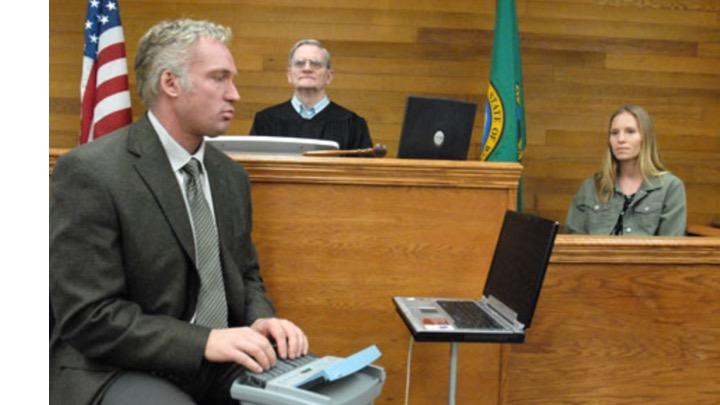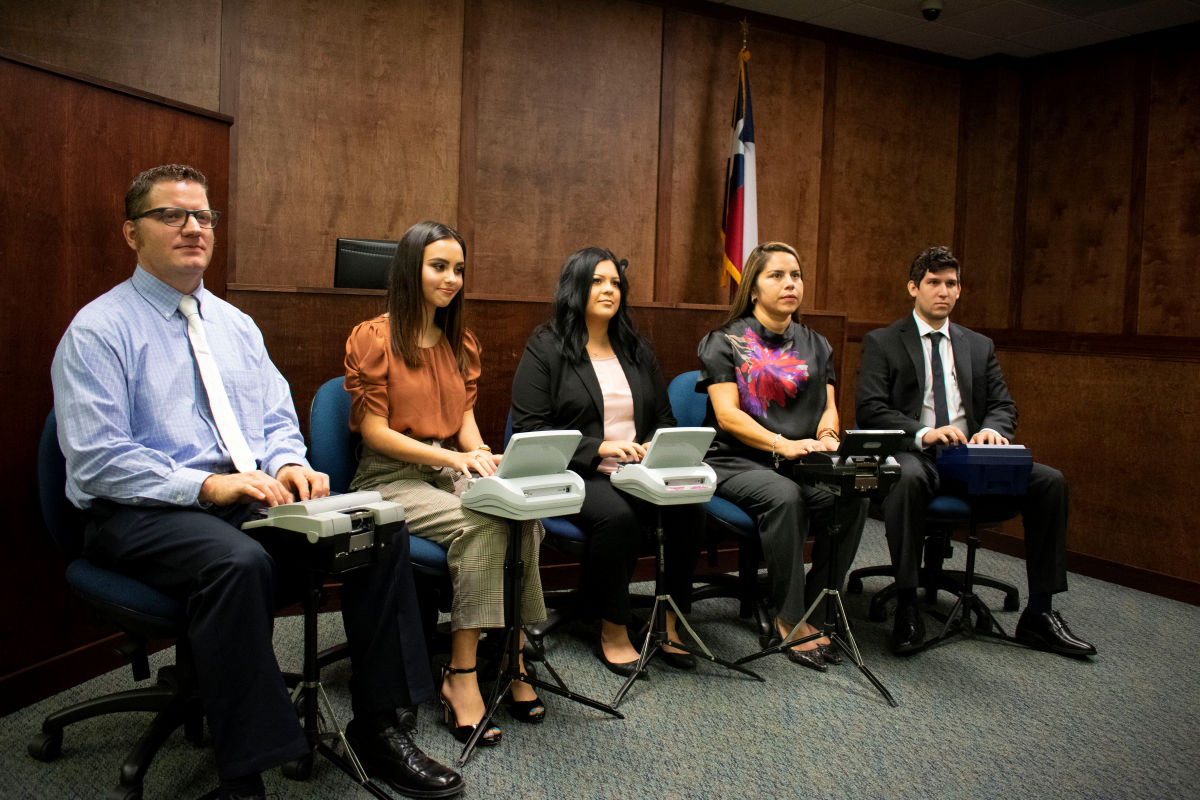Professional Court Reporting Providers for Accurate Transcriptions
Professional Court Reporting Providers for Accurate Transcriptions
Blog Article
Understanding the Value of Court Coverage in Legal Services and Procedures
Court reporting plays a pivotal role in the legal landscape, offering as the backbone of precise documentation in various lawful process. By giving verbatim transcripts, court press reporters guarantee that every statement and disagreement is carefully recorded, thus safeguarding the integrity of the judicial procedure.
Duty of Court Reporters

In enhancement to transcription, stenotype reporter are typically tasked with managing and keeping the flow of proceedings. They have to be skillful in lawful terminology and possess an extensive understanding of courtroom methods to ensure that the document mirrors the context and subtleties of the dialogue. Their work may additionally extend past standard courtrooms, including management hearings, adjudications, and various other lawful setups where documents is essential.
Furthermore, court reporters may offer real-time coverage, making it possible for prompt accessibility to records throughout proceedings, which can be essential for the effective administration of justice. By making certain that a specific record is maintained, court reporters maintain the stability of the legal procedure, assisting in charms and offering as an essential source for attorneys in their search of justice.
Relevance of Precision

The role of accuracy prolongs beyond plain transcription; it encompasses the ability to catch the subtleties of speech, including tone, focus, and non-verbal cues, which can be crucial in understanding the context of declarations made. An exact record makes sure that all parties involved-- lawyers, juries, and judges-- have accessibility to the very same details, promoting justness and openness in the judicial process.
Moreover, exact transcripts are crucial for the appellate process, where greater courts depend on them to examine lower court decisions. Inaccuracies can threaten the result of a charm, possibly impacting a party's legal rights and flexibilities. Hence, the commitment to accuracy in court coverage is not simply a professional commitment however a cornerstone of justice that maintains the regulation of legislation.
Kinds Of Legal Process
Covering a vast range of lawful contexts, court press reporters are essential in various kinds of legal proceedings, each calling for distinctive techniques and skills. Amongst the most common types are civil litigation, criminal tests, and administrative hearings. In civil litigation, court reporters record testimonies, motions, and depositions, making certain that every information is documented accurately for potential charms or negotiations.
In criminal trials, the role of court press reporters becomes even more crucial, as they transcribe all aspects of the procedures, including court selections, witness testimonies, and punishing phases - Court Reporting. The precision and immediacy of these records are critical, given the possible repercussions for offenders and the honesty of the judicial system
Management hearings, commonly carried out by governmental agencies, additionally count on stenotype reporter to keep main documents of proceedings. These hearings can involve disagreements concerning governing conformity, blog here work problems, or professional licensing, requiring specific documents.
Additionally, specialized process such as arbitration and mediation require stenotype reporter to catch the subtleties of contracts and arrangements. Each sort of lawful case provides unique obstacles, highlighting the significance of pop over here skilled stenotype reporter in upholding the honesty of the lawful process.
Technology in Court Coverage
Improvements in modern technology have actually transformed the area of court reporting, enhancing both effectiveness and accuracy in the transcription procedure. Standard approaches of manual note-taking have actually been supplemented and, in many cases, replaced by sophisticated digital devices that enhance workflows and boost precision (Court Reporting). Stenotype reporter currently use innovative steno makers furnished with real-time transcription capacities, enabling instant access to a verbatim account of process
Moreover, the integration of speech recognition software has additionally transformed the coverage landscape. This technology allows the automatic transcription of spoken words, considerably minimizing the moment required for creating official records. Furthermore, cloud-based platforms facilitate simple storage and access of records, guaranteeing that lawyers can access necessary documents from anywhere, any time.
Video clip conferencing devices have also become important elements in remote depositions and hearings, aiding stenotype reporter catch proceedings in real-time, despite place. The mix of these technical advancements not just boosts the precision of legal documents but also supports a much more reliable and adaptable lawful procedure. As the field continues to evolve, accepting these developments will be crucial in fulfilling the expanding needs of the legal sector.
Moral Factors To Consider in Coverage
The integration of technology in court reporting brings with it a set of ethical factors to consider that professionals have to browse meticulously. As court press reporters significantly employ electronic devices, problems surrounding precision, privacy, and honesty pertain to the forefront. Safeguarding sensitive information is critical; press reporters need to ensure that any type of electronic records are firmly saved and shared only with authorized people.
Moreover, the precision of transcriptions is important. Making use of software application for real-time coverage does not discharge court reporters from the duty of guaranteeing go to this web-site that the final product is accurate. Ethical obligations dictate that any mistakes should be without delay corrected and communicated to appropriate parties.

Lastly, compliance with lawful requirements and market guidelines is important. Court reporters must remain notified concerning developing honest guidelines to maintain the trust fund put in them by the legal system. By resolving these honest factors to consider, court reporters can remain to provide very useful services in lawful proceedings while maintaining public confidence.
Verdict
In verdict, court coverage plays a crucial duty in the lawful system by guaranteeing exact and trustworthy documentation of judicial proceedings. The thorough job of court reporters upholds the honesty of the lawful process and supports the civil liberties of individuals included.
Court coverage plays a pivotal role in the legal landscape, serving as the backbone of accurate documentation in numerous legal proceedings.Court press reporters consistently play an essential role in the judicial procedure by creating precise, verbatim records of lawful proceedings.Moreover, accurate records are essential for the appellate process, where higher courts rely on them to examine lower court decisions.Covering a broad variety of legal contexts, court press reporters are necessary in various kinds of lawful process, each calling for distinct approaches and skills. By dealing with these honest considerations, court reporters can proceed to provide invaluable solutions in legal process while maintaining public self-confidence.
Report this page